Economic Benefits of Rivers and LakesAlthough rivers and lakes all around the world may appear to be ideal natural features, they offer so much more than simply beautiful sights. Our economy is reliant on these waterways, which also offer possibilities for pleasure and tourism as well as hydroelectric power and agriculture. They serve as a source of drinking water and provide assistance to sectors like agriculture and fishing, which makes them essential to many communities. Even more so, they may play a significant role in luring companies and growth to the neighborhood. 
But, how much do we actually understand about the benefits that rivers and lakes have economically? In this article, we'll reveal the hidden gems that these bodies of water contain and how they boost the economy in ways you might not have expected. Let us know rivers and lakes in brief LakesA lake is an enclosed body of still water. It is a sizeable body of still water that is located inland. It frequently seems motionless because a lake's water flows so slowly. An area of land that is covered with water, confined to a basin, surrounded by land, and not linked to another body of water is referred to as a lake. 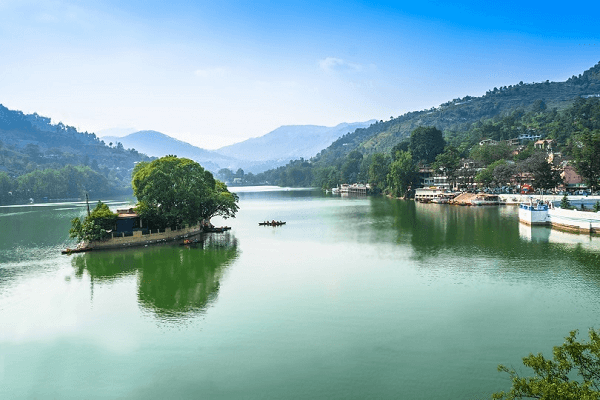
Natural or artificial lakes can both exist. Tectonic movement, glacial activity, volcanic activity, and river erosion are a few examples of the natural activities that cause natural lakes to arise. Humans build artificial lakes for a variety of reasons, including hydroelectric power generation, leisure, and agricultural and industrial usage. Freshwater lakes make up the bulk of lakes in the globe. By surface area, Lake Michigan-Huron is the biggest lake in the world. The longest lake on Earth is Lake Tanganyika, whereas Lake Baikal in Siberia is said to be the deepest and oldest lake on Earth. Uses of Lakes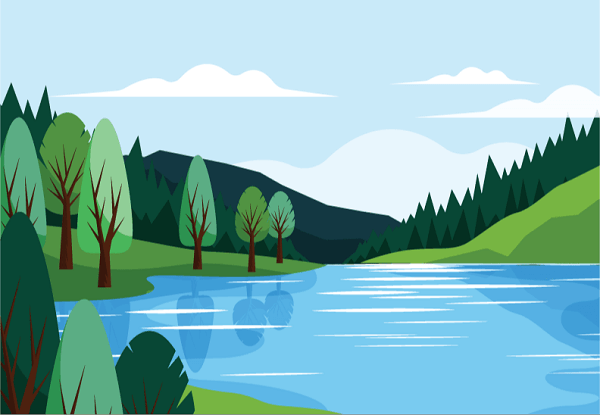
1. Helps in Load Transportation Lakes are an excellent means of transport for large loads. Huge lakes like the Great Lakes of North America offer an incredibly cheap and practical means to move heavy and bulky items like iron, coal, equipment, grain, and timber. 2. Lakes are the Route to Economic and Industrial Development In the past, human settlements were found around lakes, and the presence of lakes had a significant effect on city structures. To get water, people moved closer to lakes, which led to the emergence of civilizations, which in turn fueled the expansion of the region's economy and industry. When refilled by fertile, substantial rivers, lakes become even more powerful. 3. Water Storage Lakes, whether they are man-made or natural, are a crucial source of residential water supply. Both urban centers and commercial ones receive water from them. Thirlmere Lake, Lake Katrine, and Lake Vyrnwy all provide water to cities in England, including Manchester, Glasgow, and Liverpool. Water for Delhi in India comes from the Okla Reservoir. Bombay's water may be found in Veteran, Vihar, and Tulsi lakes. 4. Hydro-Electric Power Generation In hilly regions, lakes or man-made reservoirs supply water for nearby hydroelectric power generating. The choice should be made between natural and man-made lakes. This water is regularly delivered to the Niagara River in order to maintain the power plant's operations. The Niagara River runs from Lake Erie to Lake Ontario. Importance of Lakes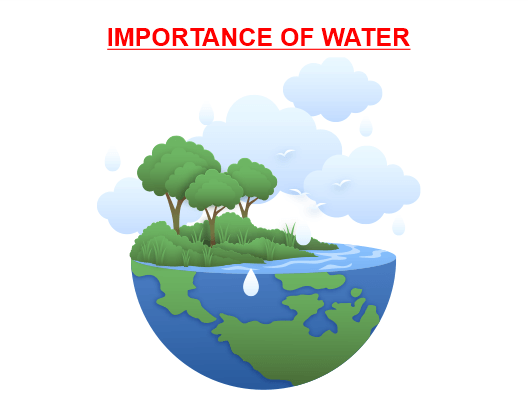
In general, tectonic or glacial action in particular location results in the formation of lakes. Lakes can also develop as a result of a meandering river or even human activity. Due to the fact that lakes are a supply of water, which is a necessity for life to exist on this planet earth, lakes are very significant for lakes. Also, other well-known lakes that are similarly important are included below: To preserve and balance the ecology, to control the flow of river water, to store water for dry seasons, to produce hydroelectric power, and for a variety of other reasons. The groundwater is refilled by lakes as well. Lakes also contribute to the economy by encouraging local economic activity. It enhances and aids in the preservation of the biodiversity of the region where the lake is located. As lakes are frequently thought of as recreational areas, they benefit tourism. Freshwater and saltwater lakes may be found in India, as well as other forms of water bodies. India's biggest freshwater lake is the renowned Wular Lake in Jammu and Kashmir. Whereas the Bhimtal Lake, the Nainital Lake, and the Dal in Jammu and Kashmir are further freshwater lakes. In Andhra Pradesh, there is a lake called Kolleru. Sambhar Lake in Rajasthan is one of the largest salt lakes that generates salt. It is legally classed as a wildlife sanctuary; as a result, it acts as a source of amusement. Rajasthan now ranks third in the nation for salt production as a result. Salinated and freshwater are mixed together to make brackish water. India's largest brackish water lake is called Chilika Lake, and it is located in the state of Orissa. RiverA river is a significant natural stream that flows across a landmass and eventually empties into an ocean, sea, or other river. Rivers are bodies of water that are constantly moving; the water in a river travels along the bank in a single direction. A channel formed by the stream bed between banks is where water in a river flows. A current is the name for the flow of water along a river. 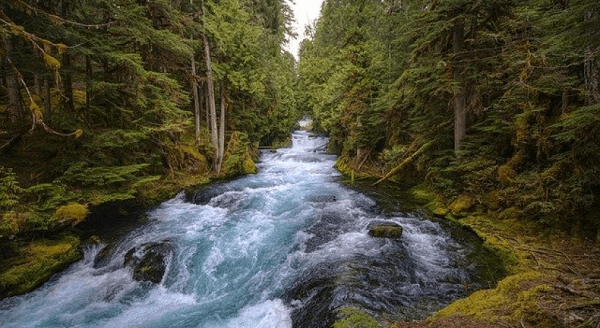
A river might span the length of a whole continent or only a few kilometers. The longest rivers on Earth are the Nile in Africa and the Amazon in South America, which each traverse many nations. The beginning of a river is called the source. There are various ways that rivers might develop. Although some rivers are also formed by the melting of glaciers or subterranean streams, rivers are mostly formed by rain or snow that falls in areas with higher altitudes. Although some rivers remain in operation throughout the year, others dry up during dry spells. A river can be one stream or numerous streams of water that are related to one another. A river's mouth is where it empties into the ocean or another significant body of water, and it is located at the end of a river. Users of Rivers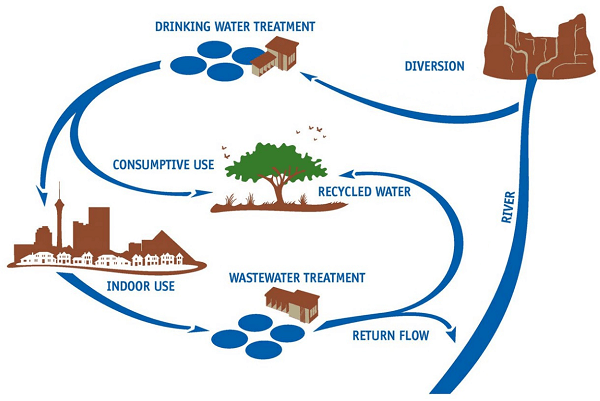
Importance of Rivers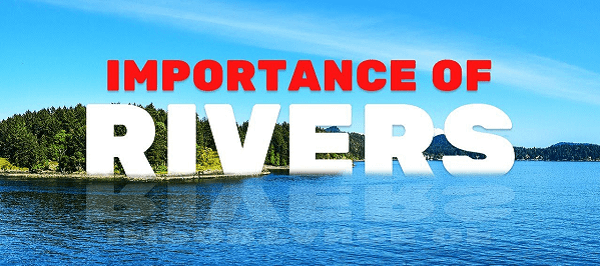
In order to irrigate land, rivers are used. For clean drinking water, rivers play a significant role in our lives. For hydroelectric power production, river water is also utilised. Hence, it is clear that river water is being used excessively. The condition of these rivers' water is being impacted by this. Because the government has taken steps to purify river water, locals can utilize lake water instead of river water, which performs similarly or nearly so, to get around this. In addition to fresh water, lake water is offered. Besides to serving as a source of hydroelectric power, this may also be used for irrigation. WaterWater and nutrients are transported by rivers to all parts of the planet. They serve as surface water drainage routes, which is a crucial role they play in the water cycle. Almost 75% of the land on Earth is drained by rivers. HabitatsMany of the creatures that inhabit the earth's surface have excellent habitat and nourishment in rivers. Around rivers, many uncommon plants and trees flourish. On the banks of the river, ducks, voles, otters, and beavers reside. Along the riverbanks, bulrushes and other vegetation like reeds flourish. The river serves as a source of food and water for other creatures. Fish from the river are consumed by birds like kingfishers. Elephants, lions, and antelopes all visit rivers in Africa to drink water. Fish are taken from rivers by other creatures like bears. Wildlife of all kinds can be found in river deltas. The delta serves as both a habitat and a source of food for insects, animals, and birds. TransportRivers offer channels for travel that are useful for trade, exploration, and leisure. FarmingFertile soils are found in river valleys and on plains. Farmers in arid areas use irrigation canals to transport water from adjacent rivers to their fields for irrigation. EnergyRivers serve as a major source of energy. Mills, stores, and factories were constructed next to swift-moving rivers during the early industrial age so that water could be utilized to power machinery. Nowadays, hydroelectric facilities and their water turbines are still powered by steep rivers. Economic Benefits of Rivers and LakesLakes and rivers contribute significantly to the economy while being an integral part of the natural landscape. 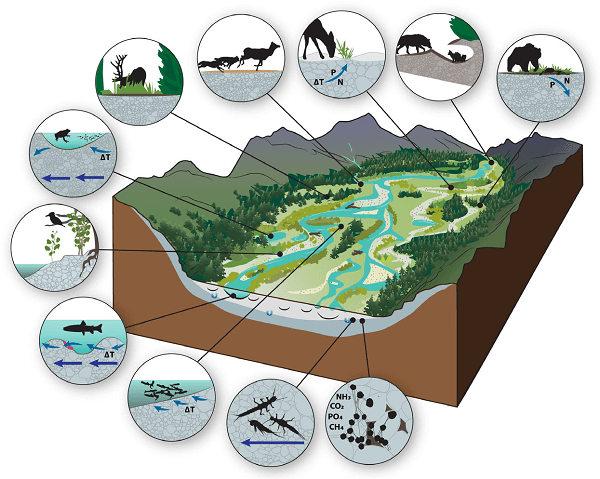
Many benefits are provided by them, such as the use of water for fishing, pleasure, and the generation of hydroelectricity. For towns and auxiliary industries like tourism and agriculture, they can also provide a supply of drinking water. A lake or river is also beneficial for the neighborhood's development and trade. In addition to rivers, lakes also provide the following economic advantages: 1. Creation of Hydroelectric Power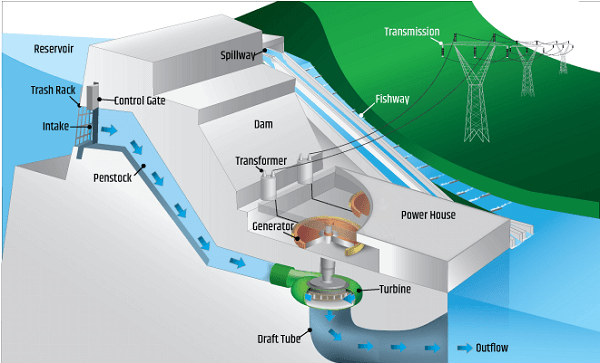
The mechanical energy of moving water is converted into electricity to provide hydroelectric power. Dams, which are constructed on rivers and lakes, can be used to do this. In comparison to other energy sources, hydroelectric power offers a number of benefits, including being renewable and having low operational expenses. With a total installed capacity of 1,325 megawatts, the Bhakra Dam on the Sutlej River in the Indian state of Himachal Pradesh is a significant hydroelectric power producer. 2. Irrigation Purposes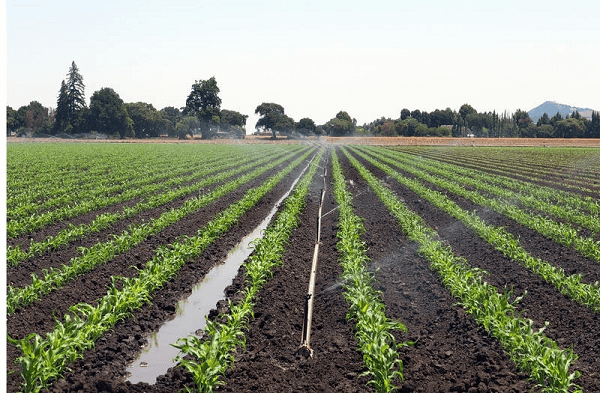
Providing water to crops during irrigation is a procedure used to cultivate and grow them. Agriculture and food production cannot function without this. Water for irrigation may be obtained from rivers and lakes, which supports the agricultural sector and helps to boost crop yields. An illustration of extensive irrigation in India is the Kaleshwaram Lift Irrigation Project in the state of Telangana. The Godavari River is used in this project to provide water for irrigation. 3. Source of Freshwater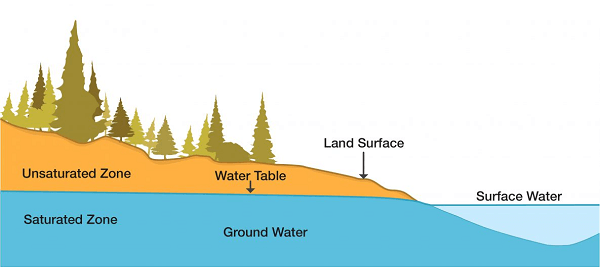
Less than 1% of the freshwater on Earth is truly useful, and it only makes up 2.5% of the overall volume of water. The need for fresh water is essential for human survival. A third of all aquatic species live there, and it fosters the expansion of the fishing industry, which boosts food security and employment. 4. Transportation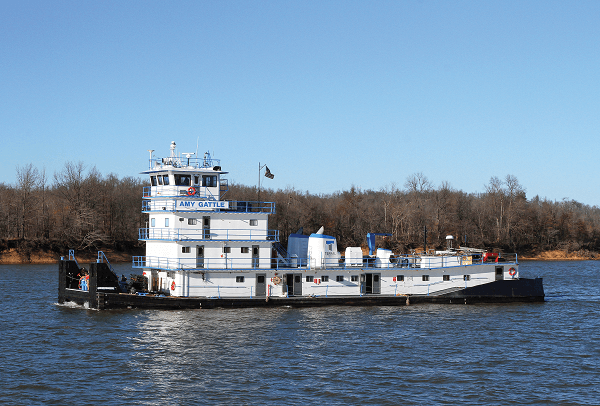
In order to sustain businesses like shipping and tourism, rivers and lakes may be exploited as a means of transit for both products and people. Compared to using a car or other kind of land transportation, using boats and ships on rivers and lakes can be quicker and less expensive. It can also provide you access to places that are far away. The Brahmaputra River, which flows through the state of Assam in northeastern India, is a significant waterway for transportation, with cargo ships and passenger ferries moving people and commodities on the river. 5. Possibilities for Recreation
Boating, fishing, and swimming are just a few of the recreational options that rivers and lakes provide. These activities may draw tourists and help local businesses. In addition to raising property prices, a river or lake may foster a sense of neighborhood. The Kerala backwaters, which were created when multiple rivers converged, are a well-known tourist attraction in India. Popular activities include boat excursions and houseboat stays. 6. Drinking Water
Communities may obtain drinking water from rivers and lakes, therefore promoting public health and reducing the expense of building infrastructure. In India, the inhabitants in the northern states of Uttar Pradesh and Bihar rely heavily on the Ganges River as their main supply of drinking water. Hindus regard the river as sacred as well, and they use it frequently for religious ceremonies. 7. Flood Control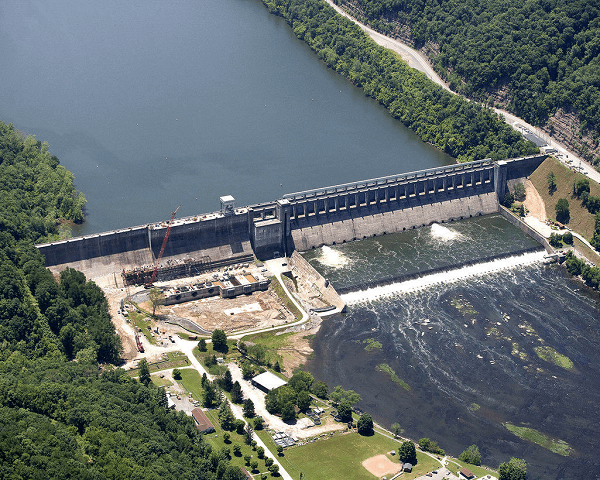
By providing a means for extra water to be kept and released gradually, rivers and lakes can aid in flood management. This can safeguard local communities and assist to avoid damage to property and infrastructure. A prime example of flood management in India is the Farakka Barrage on the Ganges River in the region of West Bengal. The barrage's purpose is to control the river's water flow and avoid floods in the communities downriver. 8. Attracting Businesses and Development of Tourism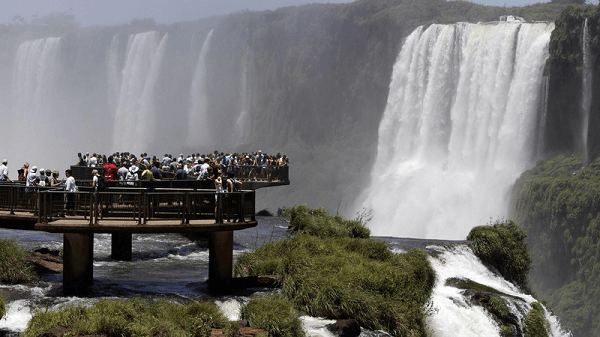
An area's economy may be boosted by the presence of a river or lake by luring businesses and development there. These can include businesses in the travel, real estate, and transportation sectors. The city of Mumbai in India, which sits on the country's west coast, is a good illustration of this. The Ulhas River's mouth, which forms the city's natural harbor, has drawn companies involved in shipping, port operations, and real estate development. ConclusionThe bottom line is that rivers and lakes are important resources for any city or area because they offer a variety of economic advantages such hydroelectric power, irrigation, transportation, recreation, and fishing. They may also serve as a source of drinking water for communities and support sectors like tourism and agriculture. The Bhakra Dam and the Kaleshwaram Lift Irrigation Project in India are just two of the examples mentioned in this article that highlight the various ways that rivers and lakes may boost the economy. For these resources to continue to provide economic advantages to subsequent generations, it is crucial to conserve and maintain them. |
 For Videos Join Our Youtube Channel: Join Now
For Videos Join Our Youtube Channel: Join Now
Feedback
- Send your Feedback to [email protected]
Help Others, Please Share










